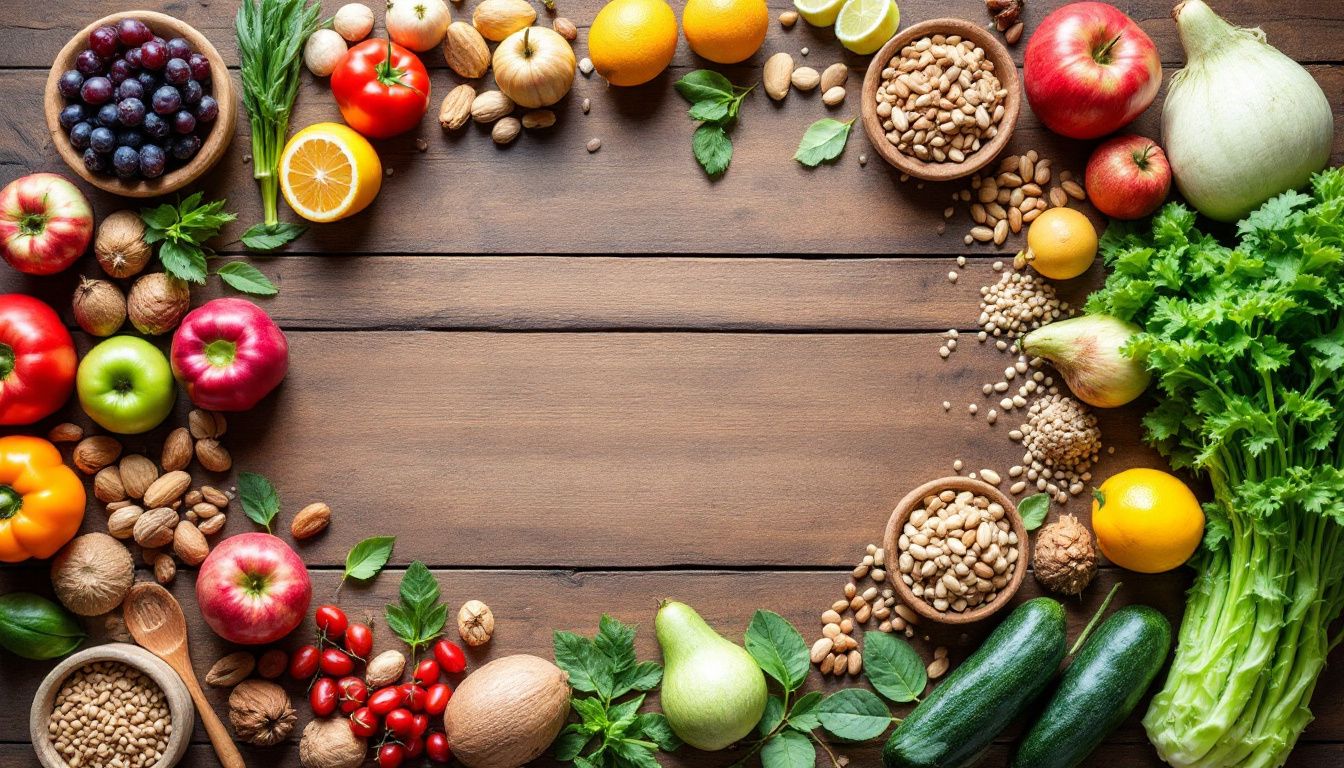Joint pain can make daily activities harder and less enjoyable. Did you know eating an anti-inflammatory diet may ease this discomfort? Certain foods can help reduce swelling and support overall joint health.
Thank you for reading this post, don't forget to subscribe!Keep reading to learn which foods to add—and avoid—for healthier, happier joints!
Key Takeaways
- An anti-inflammatory diet can reduce joint pain and swelling. It includes foods like fatty fish, olive oil, nuts, fruits, vegetables, beans, whole grains, fermented foods, and coconut oil.
- Eating omega-3-rich fish (like salmon) twice a week and using 2-3 tablespoons of olive oil daily supports joint flexibility.
- Avoid processed sugars, refined grains, trans fats (found in snacks), high-salt foods (like canned soups), and red meat to lower inflammation risks.
- Sugary treats should make up less than 10% of daily calories since they increase joint pain. Refined carbs like white bread also worsen inflammation by spiking blood sugar.
- Pair a healthy diet with exercise for better results in managing symptoms related to arthritis or other inflammatory conditions.
What is an Anti-Inflammatory Diet?

An anti-inflammatory diet focuses on lowering inflammation in the body. Chronic inflammation can trigger health problems like arthritis, heart disease, and even cancer. This way of eating emphasizes whole foods like fruits, vegetables, lean proteins, healthy fats, and whole grains.
Popular examples include the Mediterranean diet or DASH diet.
Healthy fats such as omega-3 fatty acids from fish or extra virgin olive oil play a key role. Foods high in antioxidants help fight free radicals that cause cell damage. Harvard’s Natalie McCormick explains this type of diet aids in managing diseases but isn’t a complete solution alone.
“No miracle food exists for arthritis, but proper nutrition reduces symptoms,” shared Kelly Bilodeau in 2022.
Avoiding processed foods rich in trans fats and refined carbs is vital too. These can raise C-reactive protein (CRP), linked to increased inflammation and joint pain risks. Instead, focus on nutrient-dense options like pine nuts or vitamin-C-rich citrus fruits for added benefits!
Foods That Support Joint Health
An anti-inflammatory diet focuses on foods that fight inflammation and support joint health. Eating the right foods can help reduce pain and improve movement.
- Fatty fish – Salmon, sardines, and mackerel are rich in omega-3 fatty acids. Aim for 3-4 ounces twice a week to lower inflammation and protect your joints.
- Extra virgin olive oil – Use 2-3 tablespoons daily. It contains healthy monounsaturated fats that can reduce inflammation and improve joint flexibility.
- Nuts – Pine nuts, almonds, and walnuts are packed with healthy fats. Eating 1.5 ounces daily helps lower inflammation risks over time.
- Fruits and vegetables – Include nine servings or more every day. Pick options like citrus fruits for vitamin C or leafy greens for antioxidants.
- Beans – Add red kidney beans, black beans, or pinto beans to your meals twice a week. Beans are high in fiber and may lower C-reactive protein (CRP), an inflammation marker.
- Whole grains – Eat three ounces of whole grains like brown rice or quinoa daily to get fiber benefits while avoiding refined carbohydrates.
- Fermented foods – Options like yogurt or kimchi support gut health and strengthen the immune system, which may ease rheumatoid arthritis symptoms.
- Coconut oil – Replace processed oils with coconut oil for cooking—it has anti-inflammatory qualities that promote overall joint comfort.
Foods to Avoid for Reducing Inflammation
Eating the right foods helps, but avoiding certain ones is just as important. Some foods can worsen joint pain and inflammation.
- Sugary treats
Added sugar harms your joints. Limit it to less than 10% of daily calories. Sodas, candies, and desserts are common culprits. - Refined grains
White bread, white rice, and pastries increase inflammation. They lack dietary fiber and spike blood sugar levels. - Saturated fats
Found in red meat, butter, pizza, cheese, and full-fat dairy products. These cause chronic inflammation in fat tissues. - Trans fats
Partially hydrogenated oils harm health. Found in margarine, packaged snacks, and fast food—avoid them for pain relief. - High-salt foods
Eating too much salt raises autoimmune disease risks. Avoid canned soups, chips, pickles, or processed meats with added sodium. - Foods high in purines
Organ meats like liver and some seafoods—like anchovies or mackerel—increase uric acid levels. This triggers gout attacks. - Processed sugars
Glucose-fructose syrup hides in many drinks or cereals. It fuels inflammation and weight gain over time. - Omega-6 fatty acids
Vegetable oils like corn or soybean oil worsen joint health when overused compared to omega-3 fatty acids. - Red meat consumption
High intake links to higher c-reactive protein (CRP) levels—a marker of chronic diseases including rheumatoid arthritis (RA).
Conclusion
An anti-inflammatory diet can help ease joint pain and boost overall health. Focus on foods like fish, olive oil, fruits, vegetables, nuts, and whole grains. Cut back on processed foods and sugars to reduce inflammation.
Pair healthy eating with regular exercise for the best results. Small changes in your diet can lead to big improvements in how you feel every day!
References
- https://www.health.harvard.edu/nutrition/an-anti-inflammatory-diet-may-be-good-for-your-joints
- https://www.arthritis.org/health-wellness/healthy-living/nutrition/anti-inflammatory/the-ultimate-arthritis-diet
- https://www.caryortho.com/10-foods-that-help-reduce-joint-pain/
- https://www.medicalnewstoday.com/articles/foods-to-avoid-with-arthritis
- https://www.hopkinsmedicine.org/health/wellness-and-prevention/anti-inflammatory-diet
